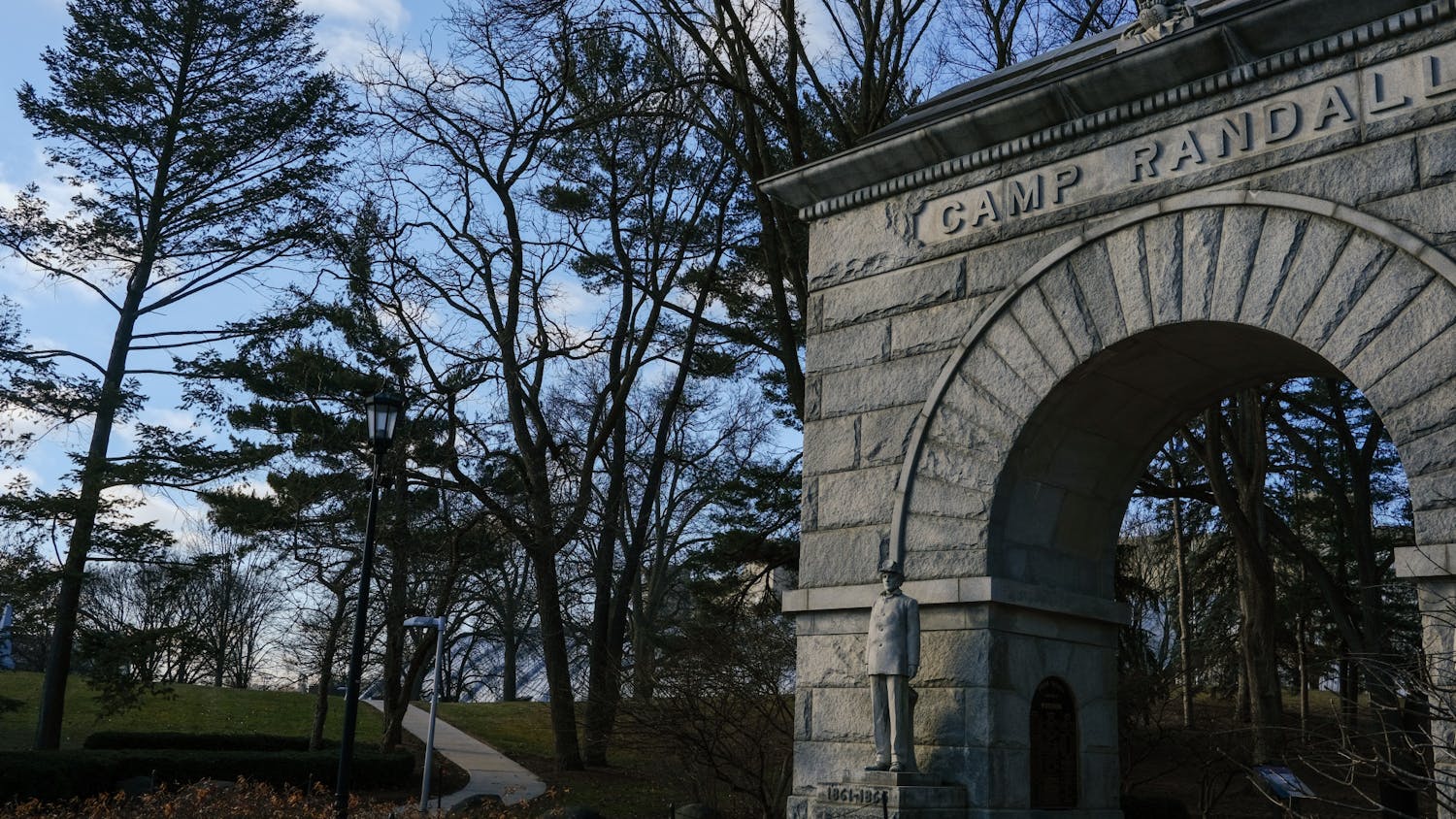\Adonai... Adonai..."" Jesus (James Caviezel) calls out, praying to God in the garden at Gethsemene. This is how Mel Gibson's ""The Passion of the Christ"" opens, and while it is already drenched with emotion, it is nothing compared to what is yet to come.
Unlike the majority of films, ""The Passion of the Christ"" cannot be properly discussed without at least recognizing what baggage you bring into the theater, theological or otherwise. No matter who you are, it is virtually guaranteed that the particular angle from which you view Gibson's film will affect what you get out of it.
I wholeheartedly understand the effect my Christian beliefs had on me while viewing ""The Passion."" Ultimately, a film like this is meant to induce conversations of faith (or lack thereof), and I refuse to shy away from acknowledging my religious beliefs influenced my reaction. However, I still stand by the following statement:
Mel Gibson's film, in my humblest of opinions, cannot be described as anything less than a work of art.
Quite simply, Gibson has created the most gripping film I have ever seen. Granted, he had some great source material, but with all the theological and political controversy surrounding the film, I was impressed with how technically sound it was. I shouldn't have been surprised, given Gibson's Oscar-winning directorial effort ""Braveheart,"" but somehow I was surprised nonetheless.
In ""The Passion,"" Gibson seems to coordinate everything in pitch-perfect harmony. The cinematography is outstanding-the colors and contrast are full, and the camera movement is interesting but never flashy. The score is broad without sounding cheesy. While the range necessary for the actors is limited, the cast delivers what is necessary. Caviezel is particularly haunting throughout.
One thing that is predictably lacking is background. Within the film, the only context for Jesus' suffering is found in the reactions of his followers and a few short, select flashbacks. It is certainly possible to follow, understand and enjoy the film without any knowledge of who this ""Jesus"" guy is. But those who come into the film with at least a background understanding of the events leading up to the arrest of Jesus will immediately understand what is going on and why.
Choosing to zero in on only the final 12 hours of the life of Christ makes the film less accessible because it leaves out so much of the rest of the story. So does the choice for the script to be in Aramaic and Latin (don't panic, there are English subtitles)-but I wouldn't change either one. By not compromising to hold the viewer's hand, ""The Passion"" sets its own terms and, by doing so, comes alive.
Given the small timeframe the movie covers, it is no more than 20 minutes before Jesus is brought before Pontius Pilate (Hristo Shopov) to be judged. Once the film hits that mark, it is a full-blown gut-wrenching exercise in sadism. No one ever claimed Roman beatings and crucifixions were pretty, and Gibson doesn't even flinch. This isn't just blood being spilt-this is flesh being torn and nails being hammered right on screen.
The film so strongly concentrates on this suffering that when the contrast comes, it is absolutely moving. Jesus falls while carrying the cross, and Mary (Maia Morgenstern) rushes to him, intercut with a flashback of Jesus falling as a boy, while Mary holds him in her arms. Later on, when Jesus can no longer continue, bystander Simon of Cyrene takes up the cross. At first he objects, but as the trek continues he quickly seems to see something in the carpenter from Galilee.
I have the feeling that many will never make it past the brutality of it all. This is understandable. To be frank, my dull cynicism about the MPAA ratings board was given renewed vigor after ""The Passion."" While the film obviously doesn't contain questionable language or sexual content, the graphic violence is so intense that there isn't a doubt in my mind it deserves an NC-17 rating. If not for the ridiculous stigma and disuse that have made the NC-17 rating a box-office nightmare, I think ""The Passion"" would be a perfect candidate. It is important to know this going in, because even the most hardened will find themselves cringing throughout the movie.
And what of all the supposed anti-Semitism? If you take select scenes out of context, the case could be made. Caiaphas (Mattia Sbragia), the Jewish high priest, is certainly painted in a more villainous light than Roman governor Pilate. But each have their counterpoints when you look at the film as a whole; while Pilate seems to be the nice guy, the Roman centurions that beat Jesus take sick, sadistic pleasure in each flogging they deliver. Their twisted smiles spattered with blood evoke more emotion than anything Caiaphas and the council does.
Another thing to be considered is that everyone at this time was Jewish-even Jesus and his disciples. So while the high priests act despicably and mobs call for the crucifixion of Jesus, many others cry out during his beating. A handful of the high priests protest during the arrest of Jesus, only to be escorted out of the temple.
I can say with confidence that there is no explicit anti-Semitism in ""The Passion."" In fact, there isn't any implied, either. Anyone who finds fuel for their anti-Semitism in ""The Passion"" could find it plainly in the Gospels, but that's not a reason to start banning the New Testament. Anti-Semitism falls in direct contradiction with nearly everything said by Jesus throughout the movie (and in the New Testament as well). He clearly says, ""No one takes my life from me, but I lay it down of my own accord."" Jesus even prays for those who crucify him.
The most telling point against such hatred is poignantly illustrated by Mel Gibson. When Jesus reaches Golgotha (the location of the crucifixion), it is Gibson's hands which hammer Jesus to the cross in a close-up. The message is clear. Jewish priests and Roman governors are not to blame for the death of Jesus.
According to Christianity, each and every single one of us is to blame, because Jesus died for our sins. Any Christian that would try to further the anti-Semitic belief that the Jews killed Jesus, which has been the root of so much hatred, pain and suffering, isn't much of a Christian.
Gibson has brought to life an event on which Christian belief is largely founded. The fact is that ""The Passion"" will slap most Christians across the face; it's one thing to imagine the kind of pain and agony Jesus would have endured, but to see it reenacted in gutwrenching detail is quite another. So many images from ""The Passion"" seem seared into my brain, and I highly doubt I'll look at a cross as a simple symbol ever again.
I don't want to overplay ""The Passion"" as a film that exclusively caters to Christians. The fact is that many Christians will despise it, due to the incredible violence. On the other hand, I think that non-Christians can certainly appreciate it, assuming they have a very superficial knowledge of the Gospels. Even if viewed as a purely fictional story, I think ""The Passion"" is so well-crafted and painfully beautiful that it shouldn't be ignored. It is a polarizing movie, and if you disagree, you're going to thoroughly disagree.
Love it or hate it, but you won't leave the theater without having a strong opinion. You'll want to talk about it.
And maybe that's all Mel was looking for.
wwtemby@wisc.edu.





